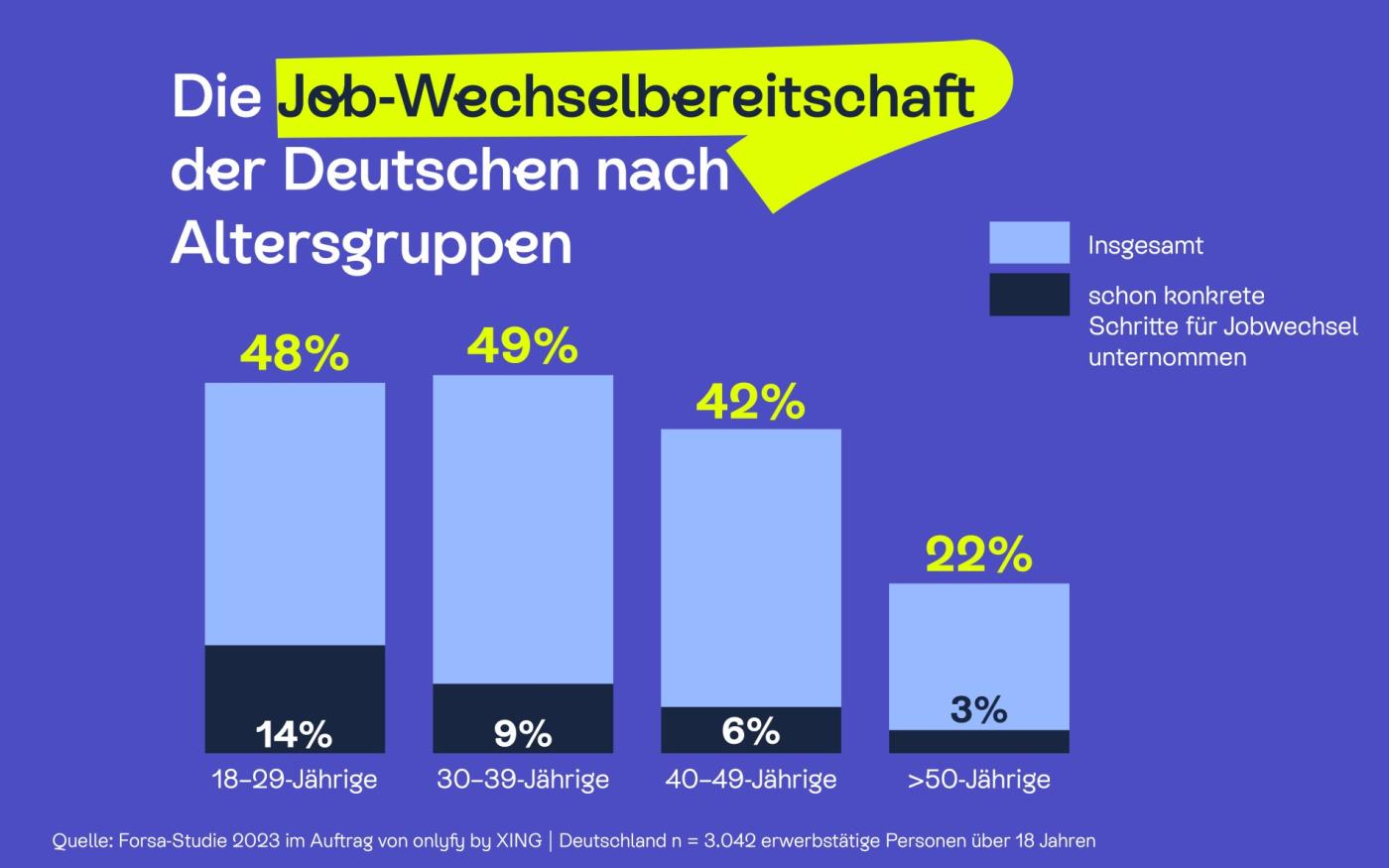Generation Y and Millenials in particular have a strong tendency to change jobs. Almost half of employees in the 30 to 39 year age group are "mentally on the move" and 9 per cent are actively looking for a new job. Around one-third cited the lack of promotion prospects. The openness to change jobs among Generation Z (18 to 29 years) is also high at 48 per cent and 14 per cent are actively looking for a new offer - more than twice as many as across all age groups. Overall, one in ten of the 18 to 39-year-old respondents was actively looking for a new job. By contrast, the willingness to change jobs is comparatively low among the 50+ generation. Less than one-fifth are ready for a new job and only 3 per cent are looking for a new position.
The willingness of employees in German-speaking countries to change jobs remains high, a survey by the Forsa research institute conducted on behalf of Onlyfy, a subsidiary of Xing, has found. Around four out of ten respondents are open to changing jobs making for the second-highest figure since 2012. Younger people in particular are on the move. Women frequently complained about poor leadership and stress while men frequently expressed dissatisfaction with their jobs and salaries. Around 4,724 employees in Germany, Austria and German-speaking Switzerland were interviewed in January 2023 as part of a long-term survey conducted by Forsa since 2012.
Willingness to change jobs varies by age

Younger generations' priorities differ
"Companies must realise that upcoming generations are more agile and have different priorities for their lives and careers," said Frank Hassler, Board Member of New Work SE with responsibility for recruiting and employer branding. "The self-confidence of the working population has solidified, and Germany's employees are positive about their professional future." Despite the economic crisis and the aftermath of the pandemic, the desire to change jobs remains high and came to the second-highest level since the long-term study began, Xing said (2019: 39 per cent).
Higher salaries, flexible working hours and good leadership
Asked about possible reasons for changing their jobs, around half of respondents and especially men (53 per cent) said their salary was too low. Around 38 per cent said their market value is higher given the shortage of skilled labour. Women complained about poor management styles (37 per cent) and too much stress (42 per cent). Thus, a new employer should offer more money, flexible working hours and good management. Corporate culture (60 per cent followed by personal sense fulfillment were among jobseekers' top five wishes. Around one-fifth of respondents value sustainable conduct and almost 75 per cent would like a four-day week with full pay. This figure came to 82 per cent and among 18 to 29 year-olds.
nj/mm/sb/pb
Sources and further information
More
Similar articles

Xing ranks top jobs and salaries in 2022

Employees confident despite crises, Xing survey on happiness finds

NWX 2022: "Cultural change is tomorrow's turnover"
